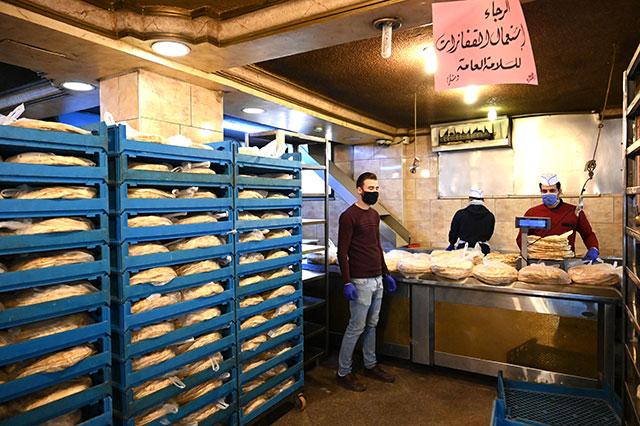- Local News
- Web-2020-11-04 | 02:50 pm

Nayrouz News Agency :
As the bakery sector remained active throughout the COVID-19 crisis, many believe that the financial damage it suffered is less than that of other sectors whose work has been completely suspended, Bakery Owners Association President Abdul Ilah Hamawi said on Tuesday.
The association president said many bakeries suffered losses as large as sectors that have not worked at all, noting that the expenses of work are greater than the revenues generated.
In a phone interview, Hamawi said that the sector has been committed to paying employees’ salaries in full and paying bakeries’ operational costs, and at present lost the opportunity to sell some products due to the closure of schools and universities.
"We depend a lot on the winter season and the opening of schools and universities to sell hamam bread and hamam bread with sesame, which we sell at 20 per cent only throughout summer and at 100 per cent when demand hikes at restaurants, which use this bread to make sandwiches for students,” Hamawi said.
He noted that this means the sales of hamam bread dropped by 80 per cent.
Although demand for pita bread does not waver, Hamawi said the sales are not enough to cover salaries and operational costs, especially since the demand for other types of bread decreased.
"Some large bakeries have 160 workers, of which 20 work on producing pita bread while the rest work on other types, which is the reason why it is hard to depend on traditional pita bread alone, and long bread used to be the essence of this season and cover a lot of expenses,” he noted.
In regard to lockdowns, Hamawi said that when they were enforced on Fridays and Saturdays, people used to purchase very large amounts of bread, more than they need, but when the lockdown was restricted to Fridays only, it was easier to convince people to not buy much as they can buy more on Saturday.
As for the upcoming comprehensive lockdown following the results of parliamentary elections, he said that there will be a meeting this week to discuss ways to deal with it.
"One of the problems that hinders our work is having to close bakeries’ doors when the curfew hours begin, even though we have a 24-hour permit,” Hamawi said, urging authorities to allow bakeries to keep their doors open even after curfew hours begin.
Hamawi said that for small bakeries, they need to keep their doors open to reduce the heat indoors, noting that otherwise, working becomes unbearable.
"There are many people whose professions allow them to have permits to move during curfew, and if they are allowed to buy their needs while others are at home, it would make it easier to manage queues the next day,” Hamawi said.
Some bakeries were issued a fine of JD110 for each person working in the bakery for remaining open after curfew hours, the association president said.
As a result, some bakery owners started protesting at the association, Hamawi said, adding that they will keep their doors closed at night, even if it meant producing insufficient amounts to meet people’s demands.
However, Hamawi said if they are allowed to keep the doors open, it would be better for people with permits, who can buy their needs away from any "dangerous overcrowdedness” and more convenient for bakeries to manage the heat and produce sufficient amounts round the clock.









